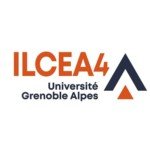Symposium
Aesthetics of resistance: other journeys for life

Starting with the Zapatistas' journey for life in Europe in 2021, this symposium will seek to analyse the structuring role of images in the constitution of models of resistance to extractivist and neoliberal logics, in order to create spaces for solidarity and sharing. The practices of marronage, women's self-management systems and indigenous models of buen gobierno will be discussed through their image cultures and collective practices, in order to consider different proposals for alternative organisation for the survival of the living, from the Global South, to use a common expression.
The postulates of ‘journeys for life’, whose motivations we want to analyse, resonate with the philosophical and anthropological reversal that took place in the last decades of the twentieth century (Latour, 1991; Haraway, 1991) and the demands of the (eco)feminist and ecological movements (Hache, 2016; Malm, 2021). In resonance with the Zapatistas and the thinking of indigenous communities (indígenas, in Spanish), the renewal of the Western way of perceiving the common calls into question an exclusively anthropocentric hegemonic postulate in economics. Haraway's analyses postulate that survival in the face of the Earth's ecological collapse depends not only on the human community, but also on inter-species cooperation and the establishment of a living commons (2020). These forms are underpinned by specific cultural and visual practices (Mirzoeff, 2020) that are crucial to the sharing and construction of the social, which this symposium aims to explore with researchers and artists alike.
The day will be broadcast live on the Abattoirs YouTube channel:
https://www.youtube.com/live/ZsfKpIWvx1E?feature=shared
Programme
Morning
10.00-10.15 Welcome introduction by Lauriane Gricourt (Director of Abattoirs Musée - Frac Occitanie Toulouse) ; Paula Barreiro López (University Toulouse Jean Jaurès) and Sonia Kerfa (University Grenoble Alpes)
10.15-10.30 Paula Barreiro López (Université Toulouse Jean Jaurès) and Sonia Kerfa (Université Grenoble Alpes) , New worlds to build: approaching the visual culture of the Zapatista journey for life in Europe
10.30-11.45 Lorena Tabares (curator), Un océan où des nombreux océans s'intègrent. Inversions and oceanic poetics of the Zapatista squadron 421 in the Montaña (in Spanish with translation by Cristina García Martínez) in conversation with Anita Orzes (University of Barcelona)
11.45-12.45 Francesca Cozzolino (EnsAD, Paris), Agir par l'art: solidariser, politiser, résister. Examples from the Zapatista Journey for Life, in conversation with Tobias Locker (Saint Louis University, Madrid)
Afternoon
14.30- 15.30 Zahia Rahmani (Institut National d'Histoire de l'Art): Le voyage de l'Eucalyptus: De la Mer de Tasmanie à la désertification des sols en terre africaine - Suivi du récit de quelques initiatives de refondation agricole contre l'assèchement des sols en Afrique du Nord en conversation avec Evelyne Toussaint (Université Toulouse Jean Jaurès)
15.30-16.30 Olivier Marboeuf (artist): Cacophonous tapestries and deparlant cinema: attempts at a fugitive archive of the Caribbean in conversation with Lauriane Gricourt (Abattoirs)
16.30-16.50 Break
16.50- 17.30 Les femmes de X'oyep (2024) presentation of the book by Alberto del Castillo with Marion Gautreau (Université Toulouse Jean Jaurès) and Audrey Leblanc (EHESS)
17.30-18.15 Round table discussion with all participants and the public moderated by Julia Ramírez Blanco (Universidad Complutense de Madrid)
18.15-18.30 Closing session
A live webcast will be available (details to follow)
Paula Barreiro López is a professor of contemporary art history at the Université Toulouse II Jean-Jaurès and a member of the FRAMESPA laboratory (France, Americas, Spain - Societies, Powers, Actors). Her professional career has spanned a number of European institutions in Spain, England and France. Through her many scientific initiatives, including the creation in 2015 of the international research platform MoDe(s) - Modernité(s) Décentralisée(s), bringing together researchers from different centres in Europe, South America and North America working on the theme of ‘Art, politics and counterculture in the transatlantic axis from the Cold War to the contemporary world’, she contributes to a history of contemporary art in the process of globalisation. She is the author of Compagnons de lutte. Avant-garde et critique d'art en Espagne pendant le franquisme (Paris, Éditions de la MSH, 2023), which was awarded the Prix Pierre Daix 2023 by the Fondation Pinault pour l'Art Contemporain. She is currently working with Sonia Kerfa on a multidisciplinary project on the Zapatista Journey in Europe, with the support of the SMS Labex at Toulouse Jean-Jaurès University.
Francesca Cozzolino is an anthropologist and holds a doctorate from EHESS (2010). She teaches humanities and social sciences at the École nationale supérieure des Arts Décoratifs (EnsAD), PSL Research University, Paris. In 2023-2024, Cozzolino was a scientific member of the Casa de Velázquez in Madrid. She conducts her research at EnsadLab and is affiliated with LESC-CNRS (Université Paris Nanterre) and CEMCA (Mexico). A specialist in the ethnography of artistic practices, she works at the intersection of the anthropology of art and material culture. Her approach proposes a political anthropology of art, analysing how artistic forms and discourses on creation feed political thought. She is particularly interested in postcolonial contexts. Since 2017, Cozzolino has been investigating artistic resistance and exchange between Mexico and Europe in Mexico. Her work explores how these dynamics influence the rewriting of history.
Marion Gautreau is a lecturer in the Department of Hispanic and Hispano-American Studies at the Université Toulouse II Jean-Jaurès and a member of the FRAMESPA laboratory (France, Americas, Spain - Societies, Powers, Actors), where she is developing her research on the history of Latin American photography and, more specifically, Mexican photography. From 2016 to 2018, she coordinated a PICS project on photojournalism and documentary photography in Mexico since 1968. With Jean Kempf (Université Lyon 2), she co-edited issue 13 of the journal IdeAs on Contemporary Documentary Photography in the Americas (2019). In 2017 she published the book De la crónica al icono. La fotografía de la Revolución mexicana en la prensa ilustrada capitalina (1910-1940). Her research on Latin American photography has been published in the journals Alquimia and Historias (Mexico), Archivos de la Filmoteca (Spain), Caravelle and Cahiers ALHIM (France), among others. From 2019 to 2023, she was also vice-president for culture at the Université Toulouse II Jean-Jaurès.
Sonia Kerfa is a professor at the University of Grenoble Alpes and holds an agrégation in Spanish. She is director of the Hispanists' Research Centre in the ILCEA4 laboratory. Her research focuses on the visual arts in the Hispanic world and the history and aesthetics of cinemas of the real, from a gendered perspective. She has published Le geste documentaire des réalisatrices. Amérique latine-Espagne, 2023, with D. Marchiori and A. Mateus; ‘I'm Not Your (Dead) Latina’. Ana Mendieta. Reminiscencias políticas y estéticas. Monograma. 2022 with I. Castro; ‘Latin American feminist film and visual art collectives’, Jump Cut: a review of contemporary media, n° 61, Fall 2022, with L.Cervera and E. Ramírez-Soto. Her project on the feminist photographer Franca Donda (Venezuela) was supported by the GIS-Institut du Genre. She is currently working with Paula Barreiro Lopez on a multidisciplinary project on the Zapatista Journey in Europe, with support from the SMS Labex at Toulouse Jean-Jaurès University.
Audrey Leblanc is a historian of photography and a research associate at EHESS, Paris. She is Visiting Researcher 2025 at Archivo, Photography and Visual Culture Research Platform. Her research explores the cultural history of image producers from the 1960s to the 1990s, from an archival and comparative perspective. She has just published ‘De quelle(s) histoire(s) les photographies d'agence sont-elles l'archive? La collection Black Star à l'Image Centre de la Toronto Metropolitan University’ (20&21. Revue d'histoire, no 163).
Tobias Locker is a lecturer at the University Saint Louis Madrid. He received his PhD in art history from the Technical University of Berlin in 2011. His current research focuses on the study of the materiality of art objects and their connection to decolonial and ecological aspects of the modern period and their reflections in contemporary art production. He has published on the instrumentalisation of art in the context of the World's Fairs and the early period of Francoism. He has been a visiting scholar at the Bard Graduate Center in New York, the Instituto de Historia del Arte Argentino y Americano (IHAAA) at the Universidad Nacional de La Plata in Argentina, and the Deutsche Forum für Kunstgeschichte in Paris.
Olivier Marbouef is a storyteller, artist, independent curator, cultural theorist and film producer from Guadeloupe. In the early 1990s, he and French-Beninese writer Yvan Alagbé founded éditions Amok (now Frémok), a research-based comics publisher that launched the legendary Parisian literary café Autarcic Comix. He went on to become artistic director of Espace Khiasma (2004 to 2018), a visual arts and living literature centre based on the outskirts of Paris and dedicated to minority representations, helping to introduce postcolonial theories to the French art scene through numerous exhibitions and meetings. He is a founding member of the Réseau Indépendant des Travailleur-euses et Acteur-ices de l'Art (RITAA) in Guadeloupe, of RAYO, an experimental education programme in the Greater Caribbean, and of the international board of the Akademie der Künste der Welt in Cologne.
Anita Orzes holds a doctorate in Art History from the Universitat de Barcelona and the Université Grenoble Alpes. Her research focuses on the transformation of the biennial model and transnational networks between biennials in Latin America and Europe during the Cold War. She has spent research periods at the Académie de France à Rome - Villa Médicis (2023), Goldsmiths, University of London (2022), the Universidade Federal de São Paulo (2022) and the University of Havana (2019). She has participated in the jueves de la Bienal de la 15ᵉ Biennale de Havana (2024-2025) and the Événement Théorique de la 14ᵉ Biennale de Havana (2021-2022). She has worked as a cultural mediator at the 53ᵉ Venice Biennale (2009) and as a documentalist for the exhibition Caso de estudio. España. Vanguardia artística y realidad social: 1936-1976 (Institut Valencià d'Art Modern, 2018-2019), focusing on Spain's participation in the 37ᵉ Venice Biennale.
Zahia Rahmani is a writer, art historian and curator. She is director of the ‘Globalised Art History’ programme at the Institut National d'Histoire de l'Art (INHA) in Paris. Inaugurated in 2004, it is the first field of research dedicated to critical corpuses and artistic practices in the era of globalisation. She has worked at the Villa Arson (École nationale d'art de Nice), the Galerie nationale du Jeu de Paume in Paris and the Leo Castelli Gallery in New York. She curated the exhibition Made in Algeria: Genealogy of a Territory at the Mucem in Marseille in 2016 and directed the research project Sismographie des luttes, devoted to non-European cultural and critical journals. Rahmani is the author of Moze (2003), Musulman Roman (2005) and France, récit d'une enfance (2006). From 1999 to 2003, she created and directed the Research Program, a post-graduate programme at the École nationale supérieure des Beaux-arts de Paris, under the direction of Alfred Pacquement. Rahmani is a member of the Collège de la Diversité and a Chevalier des Arts et Lettres.
Julia Ramírez-Blanco is a researcher (Ramón y Cajal Contract of Excellence) at Madrid's Complutense University. Her interdisciplinary work links art history, utopian studies and activist movements. She has studied the political iconography of social movements, in particular British direct action environmentalism in the 1990s and the Spanish 15M movement. She is also interested in the links between contemporary art and utopia, and in the gendered history of artistic collectives. Ramírez-Blanco is the author of Artistic Utopias of Revolt (2018), 15M. El tiempo de las plazas (2021), Amigos, disfraces y comunas (2022) and La ciudad del Sol (2023). She co-curated the exhibition Grande Révolution Domestique-Guise on feminist utopias. She is currently working on ecological utopias in the face of the climate crisis.
Lorena Tabares Salamanca is an independent researcher, writer and curator specialising in contemporary art, archives and performance. In 2023, she obtained a master's degree in Communication Sciences and the Arts from the Nova University of Lisbon, with a thesis on the reenactments and poetics of the Zapatista Movement in its Journey for Life (2021). She has curated exhibitions for various spaces in Mexico, Portugal and Austria, and has collaborated with the Institute of Mexican Culture in Vienna, the Atelier Artéria, the Macao Scientific and Cultural Centre in Lisbon and the WienWoche festival. She has been curator in residence in Serbia, at the Video-Park Festival in Užice, and in Italy as part of the Neither on Land nor at Sea programme of the Cittadellarte - Fondazione Pistoletto. In 2019, she co-edited the 15th issue of Terremoto magazine. She led the research and coordination of the educational programme Performance en révision 1990-2019 in Mexico City. In 2017 she was part of the Ex Teresa Arte Actual team for the project Stabilisation, description and digitisation of audiovisual and photographic documents in analogue formats from the Ex Teresa Fund (1993-2000).
Organisers: Paula Barreiro López (Université Toulouse Jean Jaurès), Lauriane Gricourt (Les Abattoirs, Musée - Frac Occitanie Toulouse) and Sonia Kerfa (Université Grenoble Alpes)
Symposium organised as part of the project Images politiques et nouveaux mondes à construire : la culture visuelle du voyage des zapatistes pour la vie en Europe / NOVA-IMAGO-ZAP of Labex SMS and the international research platform Modernités Décentralisés with the support of FRAMESPA, ILCEA 4 and Les Abattoirs, Musée - Frac Occitanie Toulouse.





